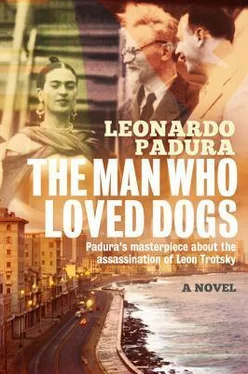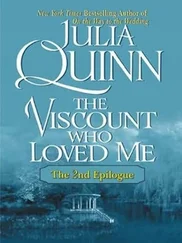Then that fine woman, surrounded by luxury and comfort from birth, educated by nuns, an expert rider of Arabian horses, married to that owner of factories who was, by his very nature, removed from the feelings of men who worked for their wealth, removed her jewels and attractive clothing and descended in search of the shadiest corners of the city. She felt another world with her hands when she decided to walk the streets of the Barrio Chino, the darkest plazas of the Raval, the narrow and fetid alleyways near the port. There, as she tasted less sophisticated and more effective alcohol, she discovered a dark humanity, weighed down by frustration and hate, who tended to speak in a language that was new to her about things as tremendous as the need to do away with all religions or to turn the bourgeois, exploitative order — that enemy of man’s dignity, that world from which she herself came — upside down. The anarchist fury, of which she had only a vague notion up until that moment, was like a blow that shook every cell in her body.
With her libertarian friends and the underclass from the ports and the red-light district, Caridad had tried heroin, paid for by her generous purse, and found in its iconoclasm a hidden satisfaction that gave life a more attractive flavor. She rediscovered sex, on a different level and with other ingredients, and practiced it in a primitive way whose existence she had never imagined in her sad married life: she enjoyed it with stevedores, sailors, textile workers, streetcar drivers, and professional agitators, for whom she also bought drinks and heroin with her husband’s money. It satisfied her to prove that among those rebels one’s origins and level of education didn’t matter: she was welcomed among them, since she was a companion willing to break the rules and to free herself from the chains of bourgeois society.
Despite the fact that the four children conceived in her womb were already sleeping in her house, it was in the midst of that vertigo of new feelings and recently learned libertarian sermons that Caridad became conscious of the hate eating away at her and she finally turned into an adult woman. She never knew for certain to what point she shared the anarchists’ ideas out of conviction or out of rebellion, but after getting mixed up with them, she realized that she was working for her own physical and spiritual liberation. On occasion, she even thought that she was taking delight in her degradation because of the disdain she felt for herself and toward everything her life had been and could continue to be. But whether it was out of conviction or hate, Caridad had gone down that path in a way that, from then on, would always be thus: with a fanatical and uncontainable force. To prove it, or perhaps to prove it to herself, she decided to cross her greatest frontiers and, along with her new comrades, planned her absurd class suicide: first she worked with them to promote strikes in the shops belonging to Pau, whom she had turned into the very incarnation of the bourgeois enemy; later, in her spiral of hate, she began to prepare something more irreversible, and with the group of her companions planned the blowing up of one of the factories that the family had in Badalona.
At barely ten years of age, Ramón had no notion of what was happening underneath the family’s surface. Enrolled in one of the city’s most expensive schools, he lived carefree, focusing his free time on physical activities, preferring them to the intellectual tasks that had been practiced in his house since birth where, at established hours, they spoke in four languages: French, English, Castilian Spanish, and Catalan. Perhaps something deeply rooted in his character already existed then, since his best friends were not his classmates or his sports rivals but rather his two dogs, gifts from his maternal grandfather when the boy showed proof of a special weakness for those animals. Santiago and Cuba, baptized by his expatriate grandfather with nostalgic names, had come from Cantabria as mere puppies and the relationship that Ramón established with them was intimate. On Sundays, after Mass, and in the afternoons on which he came home early from school, the boy used to go beyond the city limits in the company of his two Labradors, with whom he shared crackers, long runs, and his predilection for silence. He barely saw his parents. Increasingly, Caridad slept all day and went out in the evening to take up her social life, as she called the nocturnal outings from which she returned with new red bumps on her arms. His father, meanwhile, either stayed at his office very late, trying to salvage his business from the collapse caused by his older brother’s indolence, or enclosed himself in his rooms without any intention of seeing or talking to anyone. In any event, home life continued to be calm, and the dogs even made it satisfactory.
When the police showed up at the Sant Gervasi house, they had two options for Caridad’s fate: jail for being accused of planning attacks against private property, or the insane asylum as a drug addict. Her comrades in arms and debauchery were already behind bars by that time, but Pau’s social position and both of their family names had influenced the police’s decision. In addition, one of Caridad’s brothers, who was a municipal judge in the city, had intervened on her behalf, saying she was a sick woman without any will of her own, manipulated by the diabolical anarchists and syndicalists who were the enemies of order. In an effort to save his own prestige and whatever remained of his bourgeois and Christian marriage, Pau obtained a less radical solution and promised that his wife would no longer frequent the anarchist circles nor take drugs, and he gave his word (and surely some good money) as a guarantee.
Two months later, with the detoxification treatment which Caridad had agreed to undergo completed, the family left for that vacation in Sant Feliu de Guíxols, where they experienced days that came close to happiness and perfect harmony, and Ramón kept them that way in his recollections, where they became his memory’s greatest treasure.
As Caridad’s womb swelled, the family went on with its peaceful routine of daily living. Pau’s business, however, could barely recover in the middle of the crisis brought about by breaking with his dissolute older brother and the workers’ mounting demands. Luis, who would be the last of the brothers, was born in 1923, shortly before Primo de Rivera’s dictatorship began and in the midst of the truce that Caridad would break a year later: because hate is one of the most difficult illnesses to cure and she had become more addicted to revenge than to heroin.
Caridad would go back to her anarchists’ world in a peculiar way. Her brother José, the judge, had confessed that he was experiencing serious financial problems due to some gambling debts that would end his career if they became public knowledge. Caridad promised to help him monetarily in exchange for information: he needed to tell her who the judges would be in the courtrooms where her detained anarchist friends would be tried. With these facts, other colleagues waged an intimidation campaign on the judges, who received letters threatening them with a variety of reprisals if they dared to impose sentences on any libertarian. Pau Mercader quickly discovered the drain on his capital and understood where it was going. With the weakness that always characterized his relationship with Caridad, the man only took measures to ensure that she not have access to great sums and again concentrated on the businesses he was trying to maintain afloat from his new office on Calle Ample.
Upon seeing how her contribution to the cause was being obstructed, Caridad rebelled again: she went back to the brothels, where she drank and took drugs, and to the meetings in which she yelled for an end to the dictatorship, the monarchy, the bourgeois order, and the disintegration of the state and its retrograde institutions. Her brother José planned the most honorable way out with Pau and they managed to have Caridad committed to an insane asylum by a doctor friend.
Читать дальше











